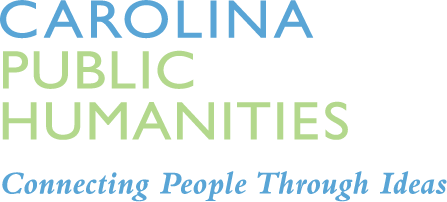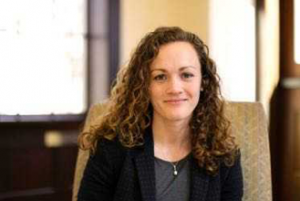2018-2019 E. Maynard Adams Fellows for the Public Humanities
Carolina Public Humanities is pleased to recognize the 2018-19 recipients of the Maynard Adams Fellowship for the Public Humanities. This fellowship honors the distinguished philosopher Maynard Adams (1919-2003), who was a long-time professor at UNC-Chapel Hill, a prominent advocate for the value of the humanities in public education and in public cultures, and a campus leader who established the Program in the Humanities in Human Values, now called Carolina Public Humanities, in 1979. The Adams Fellows focus on ideas and activities to promote public engagement with the humanities. The Adams Fellowships are made possible by a generous gift from the Taylor Charitable Trust.
 |
Tyler Bunzey is a third year doctoral student in English and Comparative literature studying how hip-hop’s various forms interact with the spectrum of orality and literacy as well as the limits of understanding rap music as a written text. His dissertation will explore how hip-hop artists theorize their own work in the spectrum of orality and literacy. Tyler lives in Carrboro with his wife Maggie and three cats Socrates, Zora, and Truman, and when he’s not trying out a new recipe, he’s probably gardening or playing disc golf. |
|
|
Alex Campbell is a doctoral student in philosophy. He was born and grew up in San Diego, California. Before coming to Chapel Hill, he received a BA in philosophy and a BS in mathematics and economics from UC San Diego. His primary research interests are in ethics and the philosophy of language. He loves teaching, especially Ancient Greek philosophy. In his free time, he likes to run, do yoga, and converse with those close to him, especially over good food, drink, and nice scenery. He’s always looking to try new things. |
|
|
Ina Dixon is a PhD Student in American Studies at UNC-Chapel Hill. She has a deep appreciation for ponds and poets from Southside Virginia, evening seminars, apples, and dilapidated old buildings that no one seems to care about anymore. Ina’s place-based research of the textile industry in Danville, Virginia explores how former industrial sites can revitalize and inspire stronger communities today. Her work builds on her training as a historian (thanks to her MA in history from the University of Chicago) and her broader interest in what it means to be human (thanks to her BA from St. John’s College in Annapolis). |
|
|
Matthew Hernandez is a Ph.D. student in philosophy from Santa Maria, CA by way of Portland, OR. His research interests lie at the intersection of normative ethics, moral psychology, philosophy of race, and feminist philosophy. He wrote his Master’s thesis on understanding arrogance in contexts of oppression, and will continue thinking and writing about arrogance, oppression, and moral character for his dissertation. Before coming to UNC, he obtained his BA in philosophy at Portland State University where he was also a McNair Scholar and University Studies Peer Mentor. When not doing philosophy, Matt spends his time running charity races with his wife, playing with his two border collies, watching and playing hockey (go Red Wings!), and reading fiction. |
|
|
Rachael Isom is a Ph.D. candidate and teaching fellow in the Department of English and Comparative Literature. Originally from Cleveland, TN, she earned her B.A. and M.A. in English from Murray State University before coming to UNC in 2013. Her research interests include poetics, religion, and 19th-century British women’s writing. She is currently finishing a dissertation on the figure of the female enthusiast in Romantic-period literature. While her semesters are spent teaching courses on poetry, fiction, and composition, her summers usually involve travel, outdoor recreation, library research, and dancing at the annual Jane Austen Summer Program ball. |
|
|
Lucas Kelley is a fourth-year PhD candidate in UNC’s Department of History. His dissertation focuses on the local competition for sovereignty between white settler-colonists and indigenous peoples in the Tennessee and Cumberland River Valleys in the decades after the American Revolution. Lucas is also a graduate research fellow in the Community Histories Workshop at UNC, where he works to develop digital tools to engage communities with their own histories. He received his MA in history from Virginia Tech in 2015 and his BA in history from Centre College in 2013. Lucas is originally from Maryville, Tennessee, in the eastern part of the state, and he tries to return to the mountains as much as he can. |
|
|
Aliosha Barranco Lopez is originally from Mexico City. She received a master’s degree in philosophy from UNAM and another from UNC-Chapel Hill. She is currently pursuing her PhD in Philosophy. Her research focuses on the nature of beliefs and rationality. Her favorite book this year is Marjane Satrapi’s “Persepolis”. |
|
|
Smita Misra is a third year Ph.D. student in the Department of Communication. Born in India, raised as a child in Bahrain, and as a teenager in Canada, she meditates on issues of migration, displacement, and notions of home. Before coming to Chapel Hill, Smita worked on theatre projects with young asylum seekers in England. Currently, she is interested in how different health practitioners listen to stories of trauma and the role of medicine within the legal and bureaucratic structures of asylum seeking. When she is not teaching or writing, Smita is rehearsing for or attending theatre performances. |
|
|
Joseph Porter is a third-year graduate student in UNC-Chapel Hill’s philosophy department originally from São Paulo, Brazil. He holds an AB in philosophy and MTS in New Testament both from Harvard University. He is interested in political philosophy, ancient philosophy, and philosophy of religion; he is interested even more in Tolkien’s legendarium and Clemson football. |
|
|
Joanna Sierks Smith grew up in Hamilton-Wenham, Massachusetts and completed her BA at Connecticut College. She spent two years working in the non-profit field before beginning graduate studies in UNC’s Department of Religious Studies with a focus on American religious history. Her research circles themes of excess and prohibition. She is currently working on a dissertation that uses models of sacrifice to examine industrial slaughterhouses as sites of the hidden sacred. Through her research on the local meat industry, she has come to see a real opportunity for intellectual and activist cross-pollination between academics and local communities of farmers, processors, retailers, and chefs, and is eager to use her work in the public humanities towards that end. |









